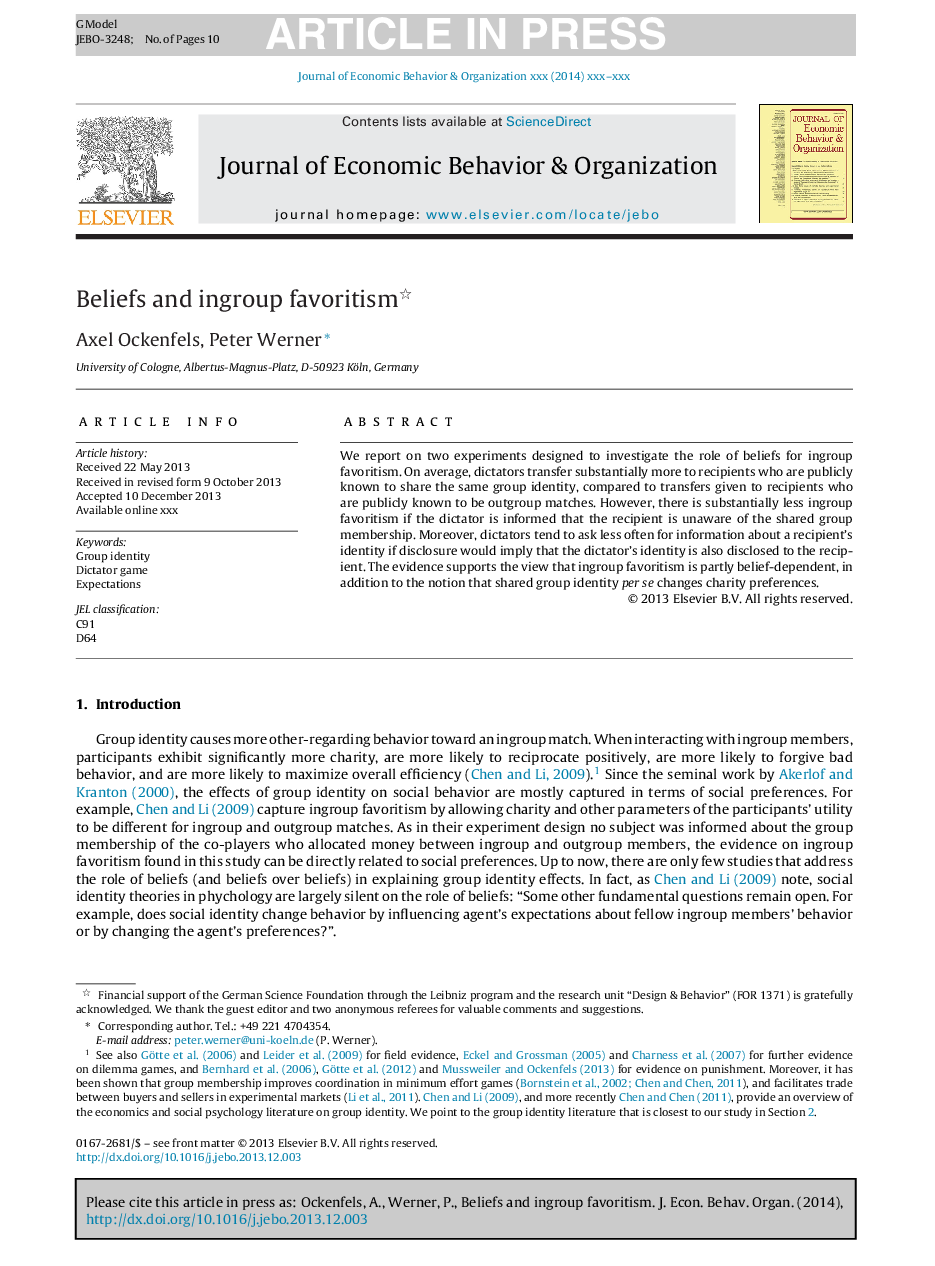| Article ID | Journal | Published Year | Pages | File Type |
|---|---|---|---|---|
| 7243378 | Journal of Economic Behavior & Organization | 2014 | 10 Pages |
Abstract
We report on two experiments designed to investigate the role of beliefs for ingroup favoritism. On average, dictators transfer substantially more to recipients who are publicly known to share the same group identity, compared to transfers given to recipients who are publicly known to be outgroup matches. However, there is substantially less ingroup favoritism if the dictator is informed that the recipient is unaware of the shared group membership. Moreover, dictators tend to ask less often for information about a recipient's identity if disclosure would imply that the dictator's identity is also disclosed to the recipient. The evidence supports the view that ingroup favoritism is partly belief-dependent, in addition to the notion that shared group identity per se changes charity preferences.
Related Topics
Social Sciences and Humanities
Economics, Econometrics and Finance
Economics and Econometrics
Authors
Axel Ockenfels, Peter Werner,
